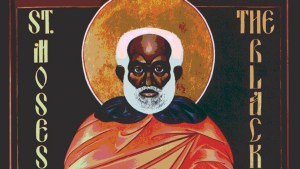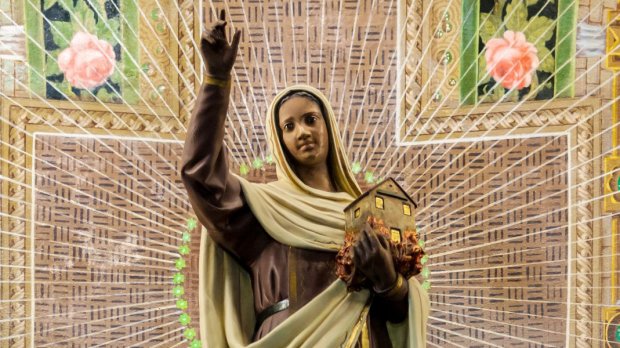Lenten Campaign 2025
This content is free of charge, as are all our articles.
Support us with a donation that is tax-deductible and enable us to continue to reach millions of readers.
Among the many titles of St. Matthew, one that is rarely mentioned is “Apostle of Ethiopia.” According to an ancient tradition, St. Matthew the Evangelist preached the Gospel in Ethiopia and suffered martyrdom in the region.
There are various stories of St. Matthew’s adventures in Ethiopia, one of which is included in the Golden Legend.
And by the commandment of [St. Matthew] they made a great church of the gold and silver that they had brought, which in thirty days space was edified and achieved. In which church the apostle sat three and thirty years, and converted all Ethiopia to the faith of Christ. And then the king Egippus, with his wife and his daughter, and all the people, were baptized. And then the apostle hallowed to God Ephigenia the king’s daughter, and made her mistress and governess of more than two hundred virgins.
Little is known about St. Ephigenia outside these legends, and for this reason, she is not included on the general liturgical calendar, though she was originally in the Roman Martyrology and her feast was celebrated on the same day as St. Matthew, September 21.
Whatever the truth may be, it is fascinating to think about receiving the Gospel directly from a gospel writer! He was a personal witness to Jesus Christ and his words bore much weight, being a first-hand account.
Over the years devotion to St. Ephigenia has been spread throughout various parts of the world, including South America among freed African slaves. Her feast day had great significance and was celebrated with joyous festivals.
She may not be well known in the Catholic Church, but her memory is still preserved and is regarded as one of St. Matthew’s first converts to Christianity.

Read more:
6 Saints for Black History Month

Read more:
How Moses the Black went from gang leader to holy abbot

